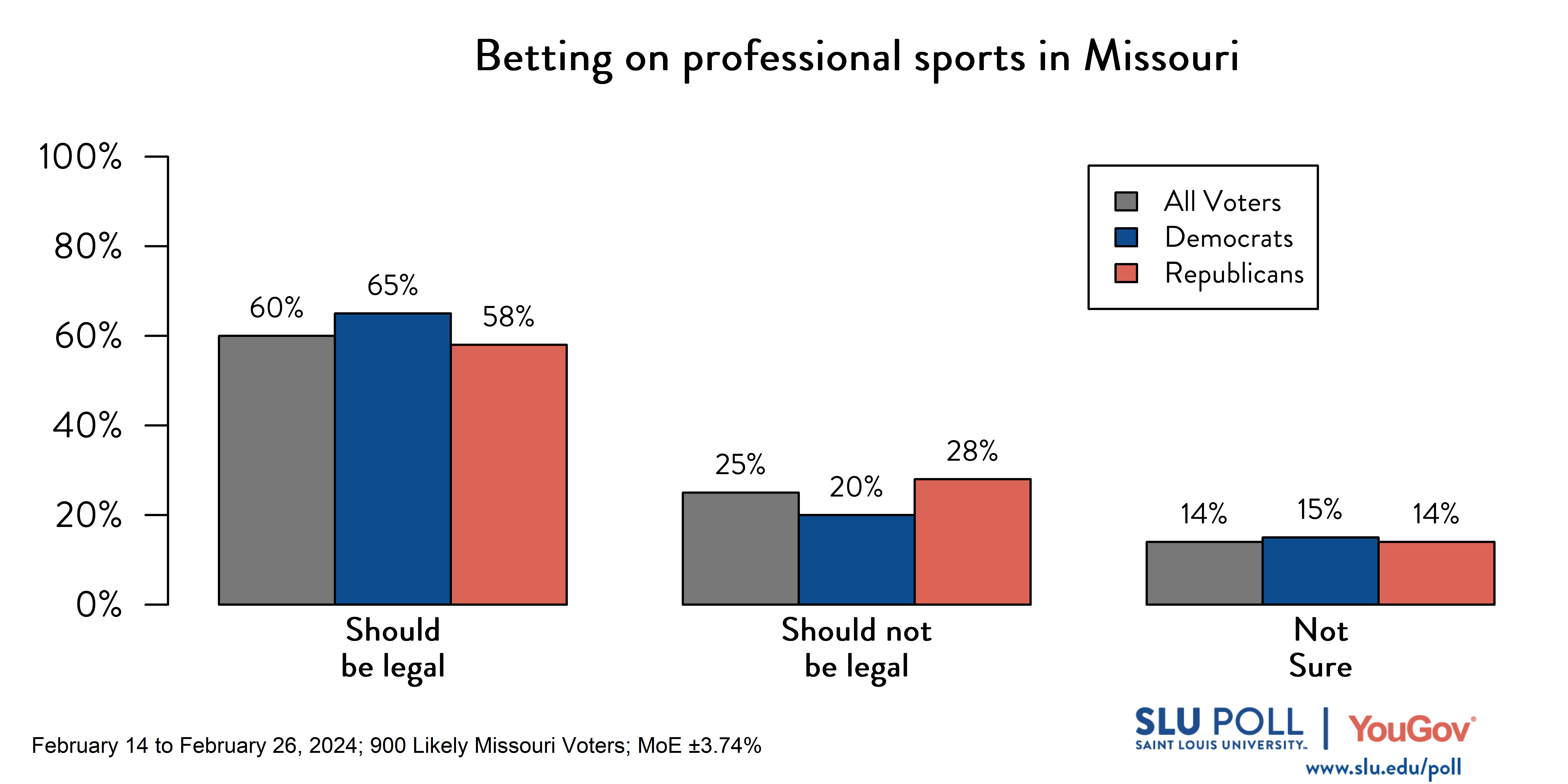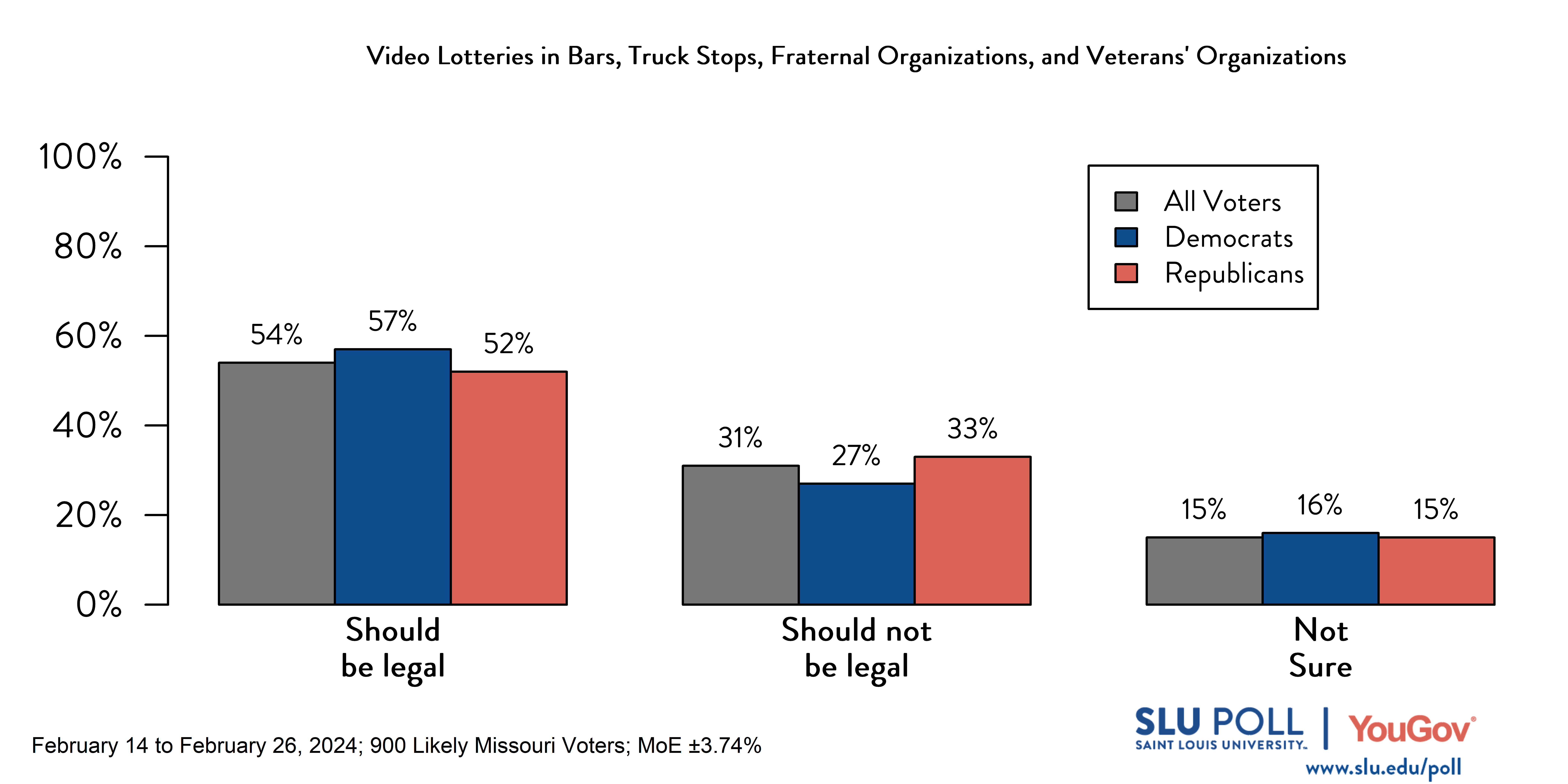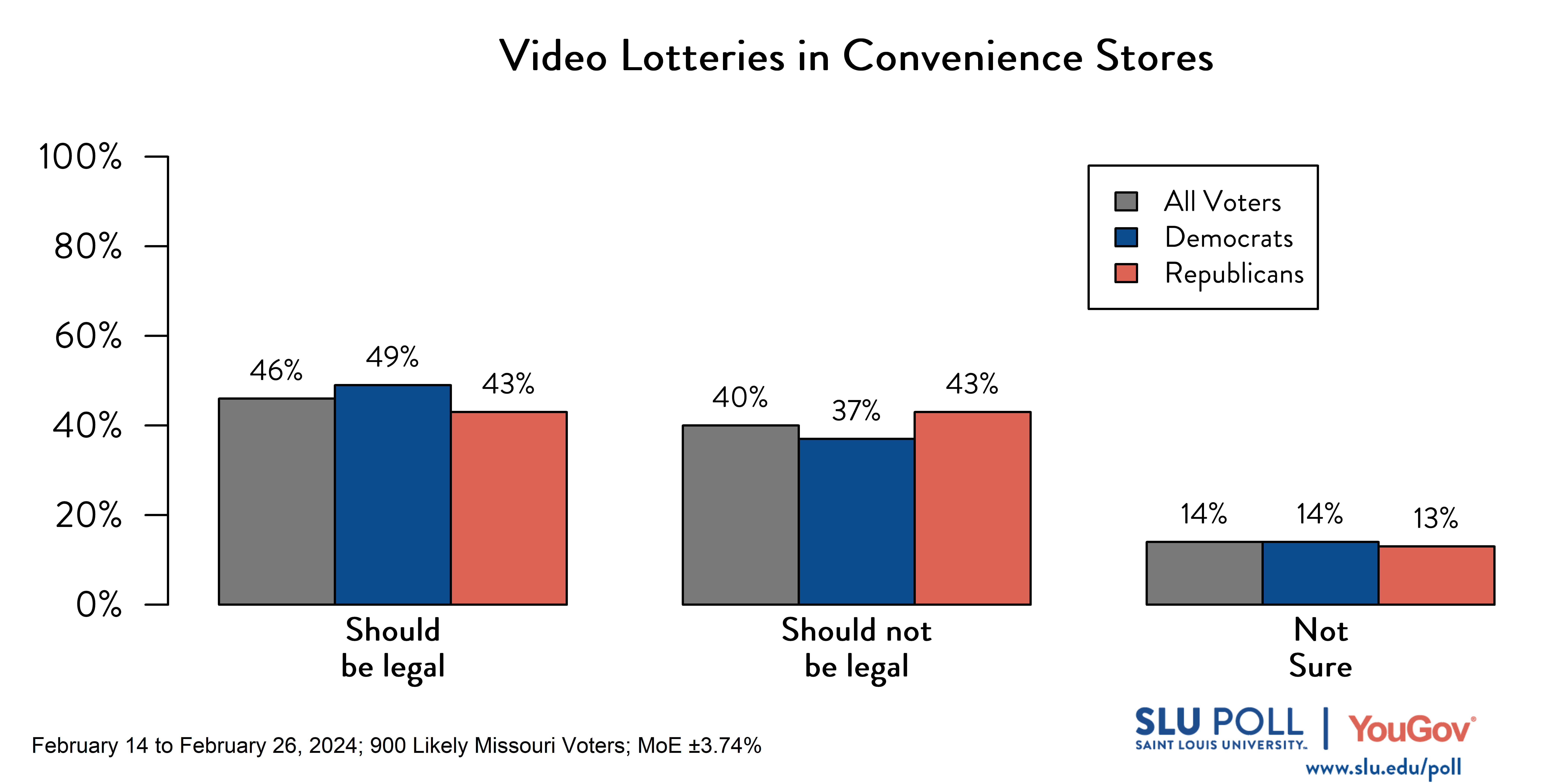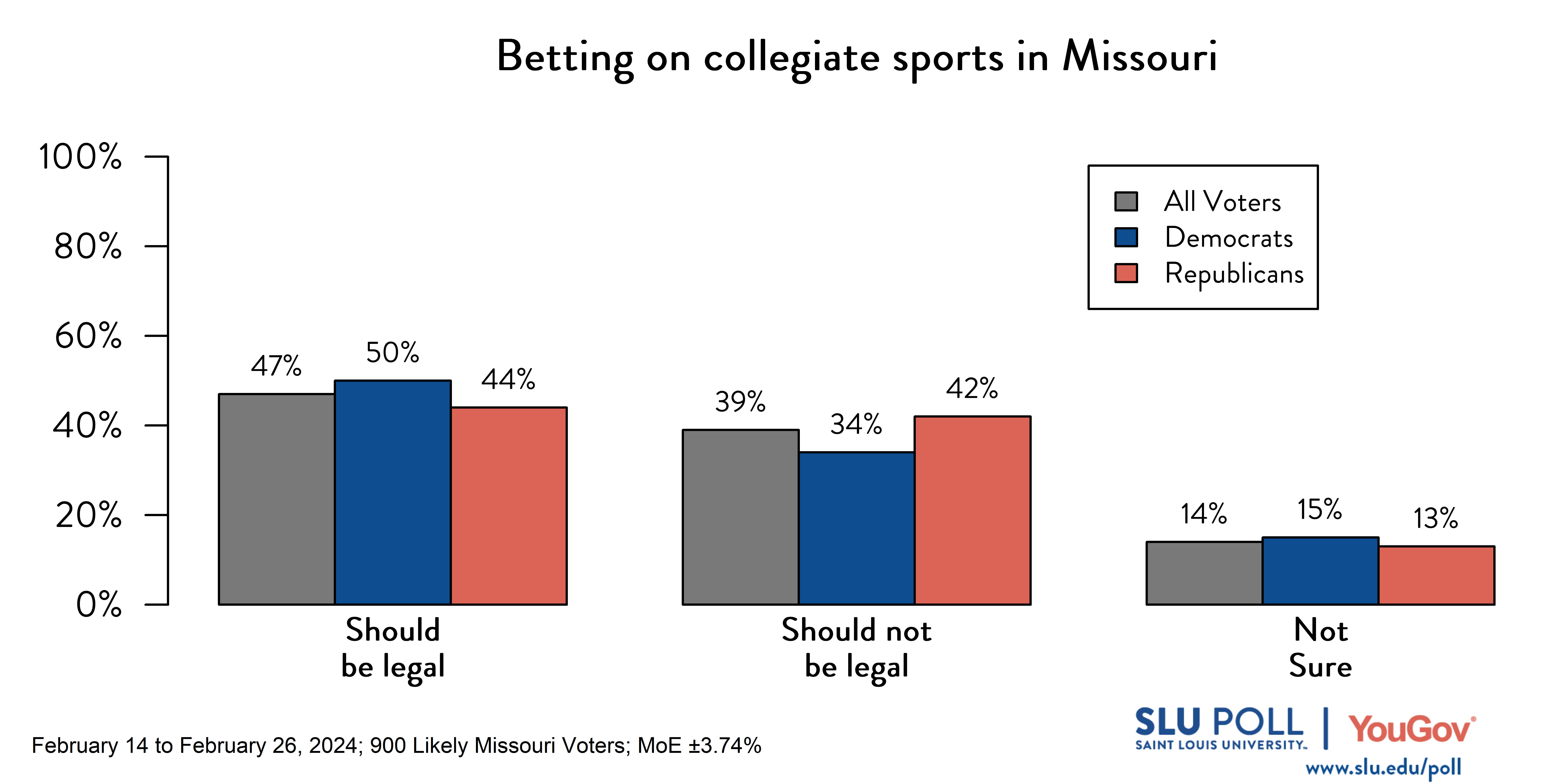SLU/YouGov Analysis: Sports Betting
SLU’s Kaitlin Klasen provides an analysis of the latest SLU/YouGov Poll results as they pertain to sports betting.
Missouri is one of only 12 states where sports betting has not been legalized. In 2018, the U.S. Supreme Court overturned a federal law banning sports betting and returned the right to determine sports betting laws to the states. Despite numerous attempts since that ruling, bills legalizing sports betting have never made their way out of the Missouri Legislature. Thus, Missourians must still cross into one of the six bordering states where sports betting is legal to wager on teams and games. GeoComply, the company that prevents sports wagers in illegal locations, reports more than 356,000 user accounts and 24.5 million blocked attempts to place bets in the state in 2023. Yet, in February 2023, the SLU/YouGov Poll was the first public poll to identify a lack of support by Missouri voters to legalize betting on collegiate and professional sports in the state.
In February 2024, the SLU/YouGov Poll again asked Missouri voters about their opinions on sports betting as new pushes for legalization arise. The results showed that 60% of likely Missouri voters believe that betting on professional sports should be legal in the state, and 25% believe it should not. More support was found from younger voters than older ones. For example, 76% of respondents aged 18-29 supported the legalization of sports betting compared to only 45% of those aged 65 and older.
This year, Missouri’s professional sports teams are not waiting on legislative action to legalize sports betting in the state. A coalition of six Missouri sports teams, including the St. Louis Cardinals and Kansas City Chiefs, is taking the decision to the voters by leading and funding a ballot initiative. The Missouri teams and sports betting platforms FanDuel and DraftKings are investing money and marketing expertise to help the ballot measure as they believe legalized sports betting will increase interest in their games and their profits, according to the Missouri Independent.
The coalition filed eight proposed ballot questions that give sports franchises eligibility for a license to receive bets on games, player performance and more if they play in arenas seating at least 11,500. Wagers could be placed online or in person at casinos and sports venues, where the state would receive 10% of the net revenue from taxes. Each year, the first $5 million in revenue would be put toward a fund to assist compulsive gamblers with any other money generated supporting public schools and higher education programs. If the initiative gains enough signatures by May, it could appear on Missouri voters’ ballots in November.
In addition to the sports team coalition’s ballot initiative, the Missouri Legislature is considering at least two major sports betting bills. Like the initiative petition, HB2331 seeks to authorize sports teams, mobile operators, and casinos to open sports betting parlors with a 10% tax on bets. SB 284 addresses one of the key points of disagreement within the Senate: video lotteries. Past legislative efforts were halted, mainly in the Senate, by disagreements on addressing the growth of unregulated and untaxed video lottery terminals at gas stations and fraternal and veteran organizations. SB 284 would legalize online sports betting in professional team “districts” and in person on gambling boats. It also includes a 10% tax rate on sports betting and video lottery terminals.
In February 2024, the SLU/YouGov poll asked likely Missouri voters if they think video lottery gaming machines in bars, truck stops, fraternal organizations and veterans’ organizations should be legal in the state for those over 21. Over half of Missourians said they believe it should be legal, and 31% said it should not. When asked about legalizing video lottery gaming machines in convenience stores for those 21 and older, there was less support, with 46% supporting legalization and 40% opposing it being legal.
Under both these bills and the proposed ballot initiative, sports wagering would only be legalized for professional sports and does not include collegiate sports. Concerns over betting on collegiate athletes involve protecting the safety of student-athletes.
When asked by the SLU/YouGov Poll, 47% indicated that they think betting on collegiate sports should be legal in the state, and 39% of likely Missouri voters opposed the legalization of collegiate sports betting. Thus, there is more opposition from likely Missouri voters to collegiate sports betting in the state than betting on professional sports.
This analysis is based on data from the February 2024 SLU/YouGov poll and reflects the opinion of the author.



